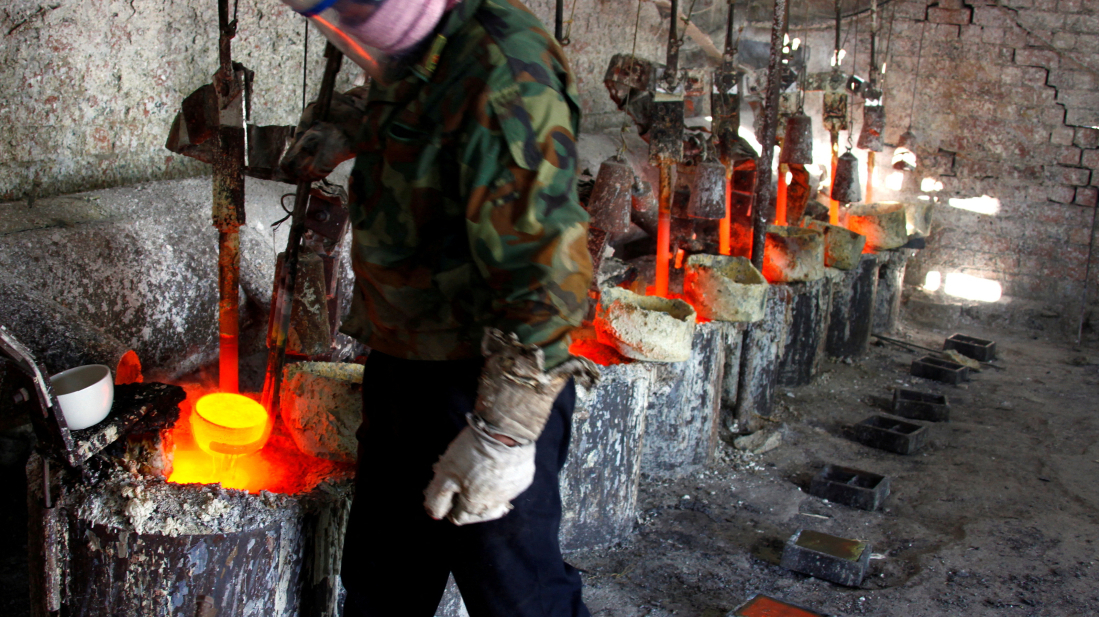Minnesota ICE operation to conclude after months of scrutiny and protests
U.S. border chief Tom Homan said on Thursday (12 February) a federal immigration crackdown in Minnesota will end after months of raids that led to mor...

China’s export restrictions on rare earths have bolstered its geopolitical hand but triggered steep losses and production cuts for its magnet manufacturers, already hit by weak domestic demand and shrinking overseas sales.
The export curbs, imposed in April in response to U.S. tariffs, slashed magnet exports by 75% in two months and forced several global automakers to pause production. While China dominates rare-earth magnet production, exports accounted for up to half of revenue for some major producers in 2024.
Baotou Rare Earth Products Exchange, a state-backed trading platform, said the restrictions had created a “crisis” for some manufacturers and warned that any recovery, even after a U.S.-China deal in late June to resume rare-earth flows, would take time to implement. Inventory has continued to build in warehouses.
“Their sales are now being squeezed from both ends – disrupted exports and flagging domestic demand,” said Ellie Saklatvala, head of metal pricing at Argus.
“They have temporarily lost an important part of their customer base, with no certainty about when they will regain it.”
Two rare-earth magnet producers told Reuters that revenue is expected to fall this year, though they declined to be named due to the sensitivity of the issue. Small and medium-sized producers cut output by around 15% in April and May, according to a source familiar with the situation.
The highly customised nature of many magnet products makes it difficult to reroute them into the domestic market, forcing producers to store unsold cargo while awaiting export licences.
Though listed firms such as Baotou Tianhe Magnetics Technology Co and Yantai Zhenghai Magnetics have acknowledged the risks, most of China’s magnet industry remains private, limiting visibility into the full impact. Analysts say recent share price rebounds may not reflect underlying challenges.
The controls echo previous Chinese export restrictions on other critical minerals such as germanium and antimony.
Despite mainly civilian uses, exports of those materials have yet to fully recover, and similar delays are expected in the rare-earth sector.
David Abraham, a professor at Boise State University, said the increased paperwork and oversight introduced by China’s export licensing regime would have long-term effects.
“In some sense, there's no going back,” he said, noting that the resulting pressure may drive consolidation in an already fragmented industry.
Analysts say further consolidation could suit Beijing’s broader strategy of reinforcing control over the supply chain while leveraging rare earths in geopolitical negotiations.
Greek Prime Minister Kyriakos Mitsotakis arrived in Ankara on Wednesday, where Turkish President Recep Tayyip Erdoğan held an official welcoming ceremony at the Presidential Palace, marking the start of high-level talks between the two NATO allies.
A senior adviser to Iran’s Supreme Leader said on Tuesday that negotiations with the United States must remain focused on the nuclear issue and be grounded in realism, as Washington and Tehran prepare to resume talks mediated by Oman.
James Van Der Beek, who rose to fame as Dawson Leery in the hit teen drama Dawson’s Creek, has died aged 48 following a battle with stage 3 colorectal cancer.
Canadian Prime Minister Mark Carney said a bridge project linking Canada’s Ontario province with the U.S. state of Michigan would contribute to cooperation between the two countries.
The suspect in a deadly school shooting in western Canada was an 18-year-old woman who allegedly killed her mother and stepbrother before attacking her former school. Investigators have not provided a motive for what is being described as one of the worst mass killings in Canada.
U.S. border chief Tom Homan said on Thursday (12 February) a federal immigration crackdown in Minnesota will end after months of raids that led to more than 4,000 arrests, mass protests and two fatal shootings.
Norwegian police searched the homes of former prime minister Thorbjørn Jagland on Thursday (12 February) as part of an ongoing investigation into alleged ties between prominent Norwegians and the late U.S. sex offender Jeffrey Epstein, authorities and media reports said.
North Korean leader Kim Jong Un has chosen his teenage daughter as his successor, South Korea’s spy agency told lawmakers on Thursday.
Belgian police searched multiple European Commission offices in Brussels on Thursday as part of an investigation into the 2024 sale of EU-owned buildings to the Belgian state.
Polls have close in Bangladesh's first general election since the fall of Sheikh Hasina’s government, marking a pivotal moment in the country’s political transition. Turnout reached 47.91% by early afternoon, according to partial data from election authorities.
You can download the AnewZ application from Play Store and the App Store.

What is your opinion on this topic?
Leave the first comment